Sophia Ibrahimi
Body turns on amazing features to adjust to cold
By Michael Huckabee, Ph.D., professor and director of the UNMC physician assistant program. Dr. Huckabee writes a blog for the Omaha World-Herald’s LiveWell Nebraska website
Jan 23, 2014

Recording molecules at the nanoscale
Before Yuri Lyubchenko, Ph.D., professor of pharmaceutical science in the College of Pharmacy, explains his research, he has a question: “Are you familiar with the concept of a record player?”
Jan 15, 2014
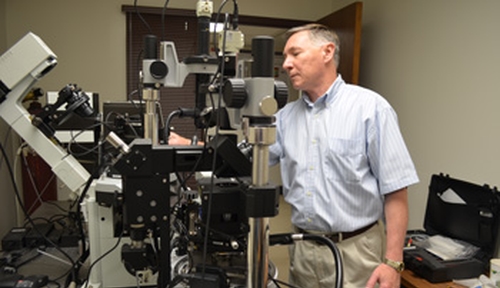
Demand grows for bioinformatic gurus
As information technology becomes more integral to health care, the need grows for specialists who can turn biomedical data into knowledge that will improve people’s health and wellbeing.
Jan 15, 2014
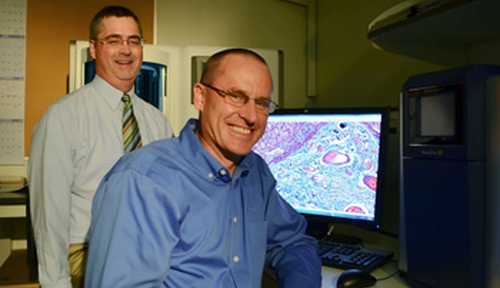
Multitasking has its limits
There is the old joke about not being able to walk and chew gum at the same time. But there’s something to it, scientifically, said Dawn Venema, Ph.D., assistant professor of physical therapy education. As a clinician, she saw it all the time.
Now she studies it.
Jan 15, 2014
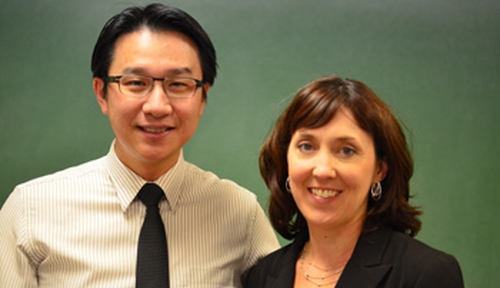
Commitment is key for double doctorate
In the marathon to obtain both M.D. and Ph.D. degrees, there are moments when one wonders if he or she should keep going.
Jan 15, 2014
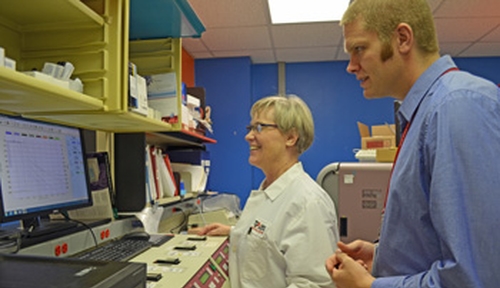
22-year-old sees promise in breast cancer research
It was an emotional experience for Brandi Preston, 22, and breast cancer researcher, San Ming Wang, M.D., associate professor of genetics, cell biology and anatomy, when they met after he spoke to Bright Pink, a support group for those affected by familial breast cancer.
Jan 15, 2014
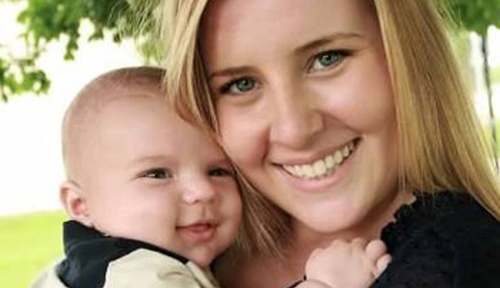
Personalized medicine requires massive computations
Imagine asking a question and getting 30,000 answers coming at you like water from a fire hose.
How would you sort through all that information and find the one answer you’re looking for?
Jan 15, 2014
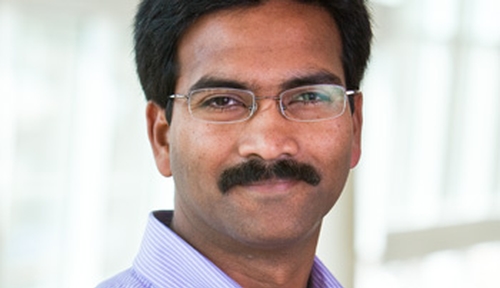
Tailoring meds: Studying how genetics influence prescribed drugs, dosages
Julie Oestreich, Pharm.D., Ph.D., knows prescription drugs don’t work the same for everyone.
But, she wants to better understand how genes influence individual drug responses so doctors can prescribe the drug and dosage that works best for the patient being treated.
Jan 15, 2014
Which treatment is better? Comparative effectiveness research can answer that.
All over campus, UNMC scientists are using comparative effectiveness research.
It’s a science that looks at large data sets, or uses meta-analysis, to evaluate health outcomes. It compares different interventions and strategies to prevent, diagnose, treat and monitor health conditions.
Jan 15, 2014
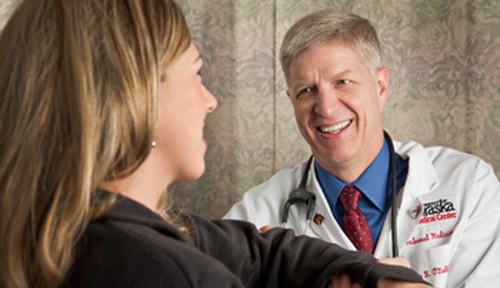
Medical research is a numbers game
Most of us know BMI as body mass index.
But, for medical researchers, it represents the evolving world of “biomedical informatics,” which is transforming science before our eyes.
Jan 15, 2014